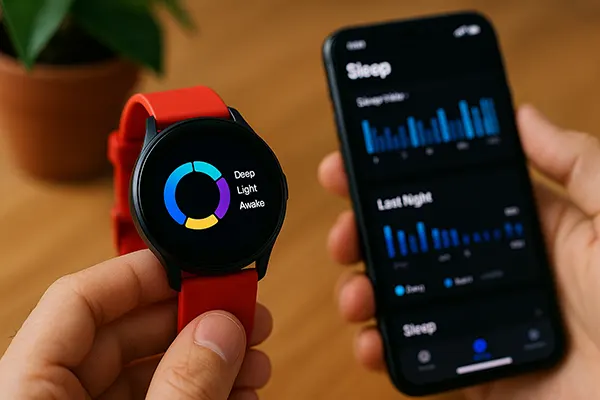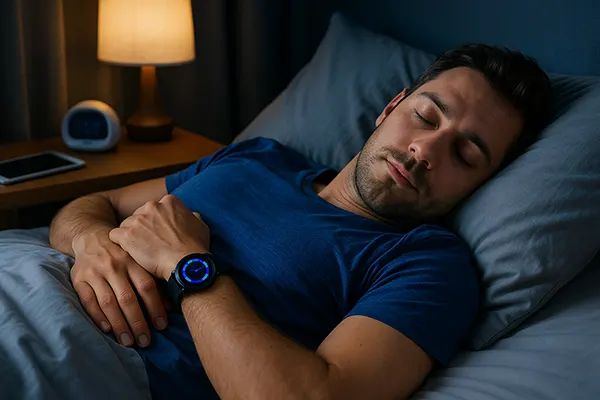Modern wearable devices promise better sleep and improved well-being through detailed sleep analysis. But how deeply do these technologies observe us when we’re most vulnerable—at rest? In this article, we examine the current state of sleep-tracking technologies, assess their methods of data collection, and evaluate the privacy implications involved.
What Data Is Collected During Sleep Tracking?
Sleep tracking devices—whether in smartwatches, fitness bands, or under-mattress sensors—collect a wide array of biometric and behavioural information. At their core, they measure heart rate, body temperature, movement, respiratory rate, and sometimes even blood oxygen levels. Some advanced systems monitor snoring, vocalisations, and environmental factors such as light and noise.
This data provides insights into sleep duration, phases (light, deep, REM), interruptions, and patterns over time. It helps identify irregularities like insomnia or sleep apnoea, giving users the opportunity to adjust their habits or seek medical help.
Importantly, the sophistication of such trackers means they are not just simple timers anymore. With algorithms trained on millions of sleep cycles, these devices increasingly resemble non-invasive diagnostic tools.
How Reliable Is the Data from These Devices?
While consumer sleep trackers have improved over the past five years, their accuracy still varies significantly depending on the device. Clinical-grade trackers can provide close-to-medical precision, but typical commercial devices often struggle with differentiating between sleep stages or wakefulness when the user lies still.
According to a 2024 meta-analysis by the British Sleep Society, wrist-worn devices from leading brands tend to overestimate sleep duration and underestimate disturbances. Yet for general trend monitoring, they offer a reasonable balance of convenience and insight.
Another factor is calibration. Devices may perform better once they gather enough data about a specific user’s sleeping habits. This highlights the need for consistent use over time for the data to become truly meaningful.
Privacy and Ethical Concerns of Sleep Surveillance
Tracking sleep involves gathering intimate biological data, often continuously over long periods. While this may seem benign compared to other health tracking, the sheer intimacy of sleep makes this data particularly sensitive. Questions arise: who owns this data, where is it stored, and how is it used?
Most commercial companies retain sleep data on cloud servers, with terms of use often granting them significant leeway in using aggregated or anonymised data for commercial or research purposes. However, recent regulatory frameworks in the UK and EU, including updates to the GDPR, stress the need for explicit consent and transparency.
Furthermore, users should remain vigilant regarding data-sharing permissions, especially when integrating sleep data with third-party wellness or insurance services. The aggregation of sleep data with lifestyle data can create detailed behavioural profiles that go far beyond sleep alone.
Can Sleep Tracking Be Turned Against Us?
In certain contexts, yes. For example, insurers may eventually use long-term sleep data to assess risk profiles. Employers might encourage or require wearable monitoring for productivity or health benefits. While such practices remain largely speculative in the UK as of mid-2025, precedents are emerging in the US and Asia.
There is also concern around how much users understand the permissions they grant when setting up their devices. Sleep data might seem harmless, but combined with activity, diet, and emotional data, it forms a comprehensive digital footprint of someone’s life rhythm.
This highlights the need for clear guidelines, opt-out options, and informed consent mechanisms that respect the user’s autonomy and understanding.

Opportunities and Risks in Future Developments
As sleep tracking evolves, it is likely to integrate with other health systems for holistic well-being management. Already, some devices can alert users to potential sleep disorders, sync data with GPs, and even offer tailored sleep hygiene recommendations based on real-time behaviour analysis.
AI models trained on global sleep data patterns are becoming more sophisticated. They not only identify issues but begin to suggest lifestyle changes—caffeine limits, bedtime routines, or screen time reduction. While promising, this also raises ethical dilemmas regarding nudging and behavioural conditioning.
From a public health perspective, aggregated anonymised sleep data could become a vital tool in understanding national health trends and mental health correlations. But this must be balanced with stringent anonymisation standards and user control.
Where Should We Draw the Line?
Sleep tracking offers enormous potential for self-awareness and preventative health. But as we embrace convenience, we must not forgo agency. It’s essential for developers, regulators, and users to collaborate on ethical standards that prioritise transparency, security, and choice.
Sleep should remain a private act. If the trade-off for personal optimisation is persistent surveillance, we must pause and reflect on what that means in human terms. Better sleep should not come at the cost of digital overexposure.
Technological progress is inevitable, but how we shape its direction and boundaries remains our collective responsibility.


